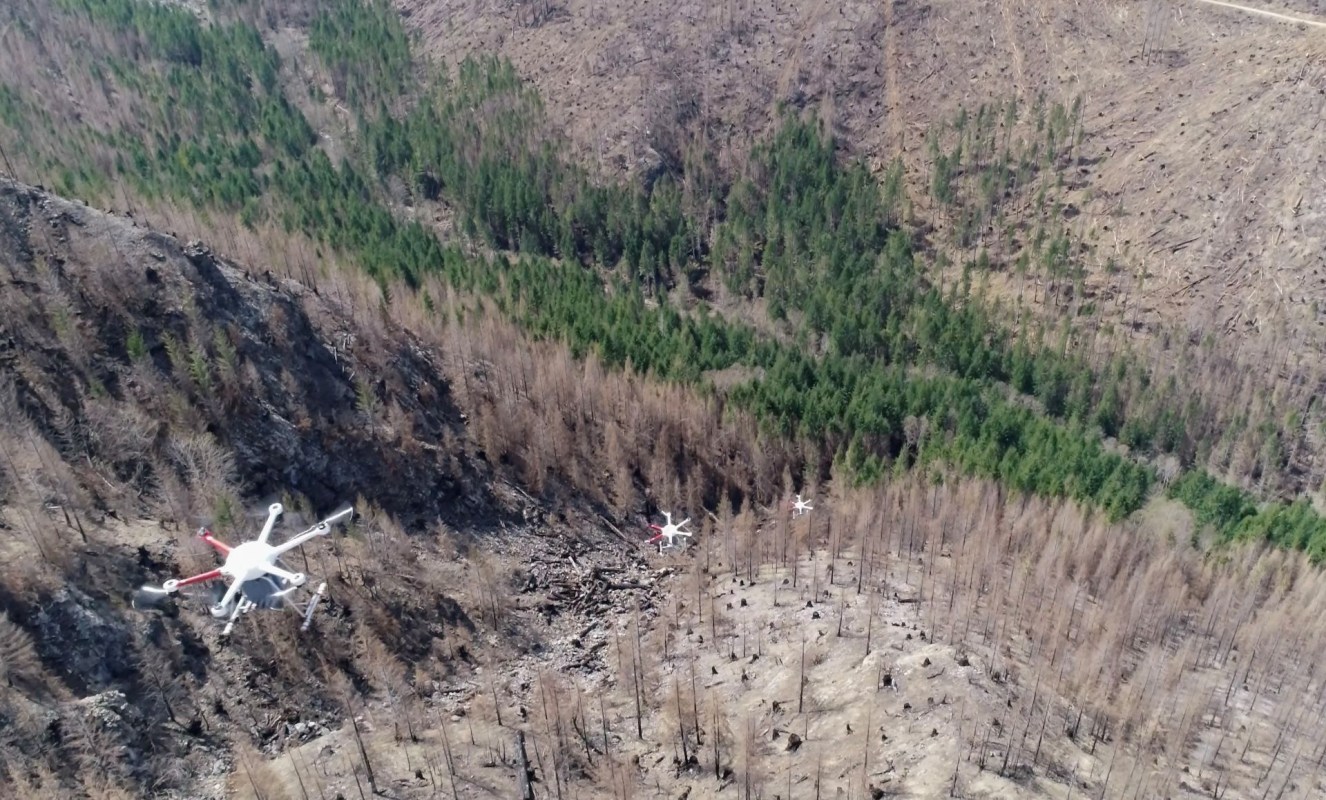The American and Canadian West has seen a dramatic increase in wildfires in recent years, with that trend expected to continue.
And while natural regeneration — allowing the forests to grow back by themselves — is sufficient after some wildfires, many of these extreme wildfires are increasing the need for active reforestation.
"Numerous, severe threats to forested landscapes continue to escalate in size, frequency, and intensity," the U.S. Forest Service website says. "Uncharacteristic wildfire, insect infestations, diseases, drought, flooding, invasive species, and climate change endanger forests and create a need for restoration."
That's where Grant Canary, founder and CEO of Mast Reforestation, comes in.
Canary became interested in forestry and reforestation when he started looking for a new, ethically-minded business venture and realized that trees are the most effective tools we have to fight the carbon pollution in our atmosphere.
"The more I learned, the clearer it became that there were limitations to the scale-up of reforestation our climate-altered world needs," Canary told The Cool Down. "My thesis was that technology and new innovations could supplement proven forestry practices, push back some of those limits, and expand the reforestation industry. Shortly after that, I co-founded Mast Reforestation to test that thesis."
Mast Reforestation is the newly founded parent company of Canary's original venture, DroneSeed. Founded in 2016, DroneSeed introduced drone technology to reforestation efforts, using massive drones to drop specialized seed "vessels" — seeds contained within a fiber case, surrounded by fertilizer, nutrients, and natural pest deterrents — into areas affected by wildfire.
The company would go on to acquire Silvaseed, a tree seed supplier, and Cal Forest Nursery, a tree nursery.
"Together, these companies form [the] western U.S.'s largest vertically integrated reforestation supply chain," Canary said.
When it comes to reforestation, it all comes down to seeds.
"The term 'Mast' refers to the phenomenon that takes place once or twice a decade when trees in the same area produce a bountiful crop of cones that generate an abundance of seed," Canary said. "When it comes to our model for reforestation, nothing happens without seeds. The name Mast represents the company's mission: to address every bottleneck in the reforestation supply chain, scale up reforestation, and restore climate-adapted forests."
The greatest challenge, Canary said, is simply growing enough seeds, which is why the business acquired both a seed supplier and a nursery.
"Nursery space is limited," Canary said. "There is a two–to–three–year bottleneck of delivering new seedlings to landowners affected by wildfires. By investing in the tech needed to scale seedling production, we strive to reduce these bottlenecks and get seedlings to the landowners who need them."
Through its use of carbon removal credits — a type of officially sanctioned permit that Mast can create by providing environmental benefits and then sell to a different company that needs to make up for causing environmental harm — the company is able to provide reforestation services to landowners with no upfront costs.
"This innovative model for financing reforestation has never existed before — historically, a small percentage of reforestation projects have been funded from carbon removal credit sales," Canary said.
And while that all might sound very technical and businesslike, according to Canary, "there are many ways to get involved in working on climate solutions, including the field of reforestation, and we need all of the help we can get."
"Whether you're a biologist, engineer, HR specialist, financial analyst, or general enthusiast," he added, "companies are always looking for passion-filled employees who are ready to take the challenge head-on."
Join our free newsletter for cool news and actionable info that makes it easy to help yourself while helping the planet.









